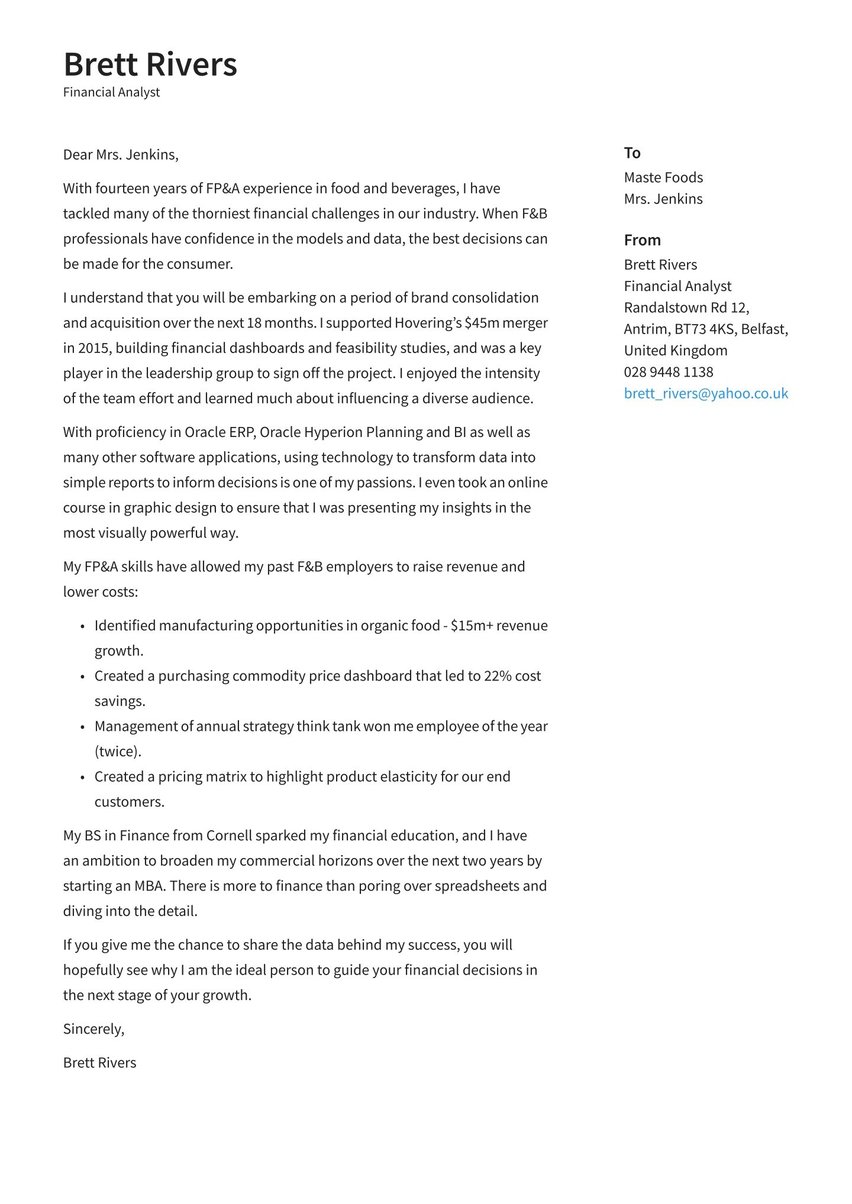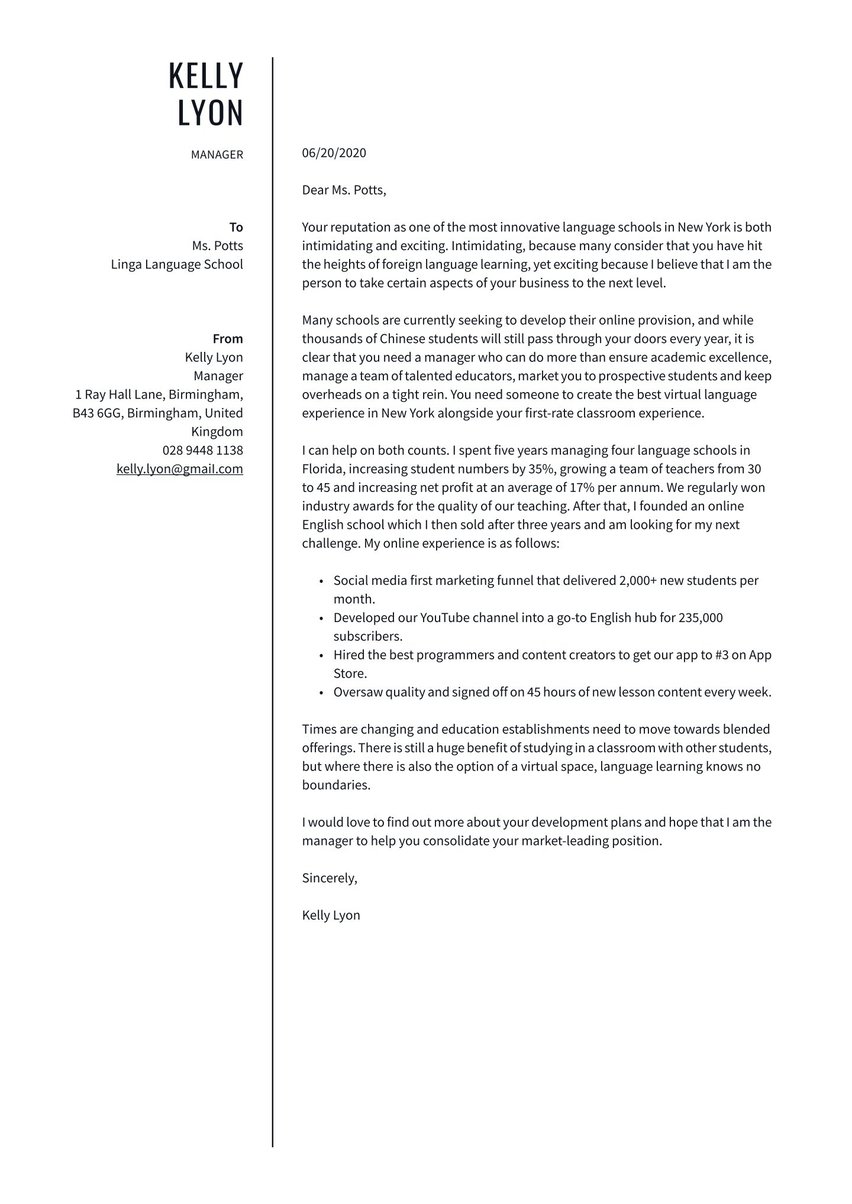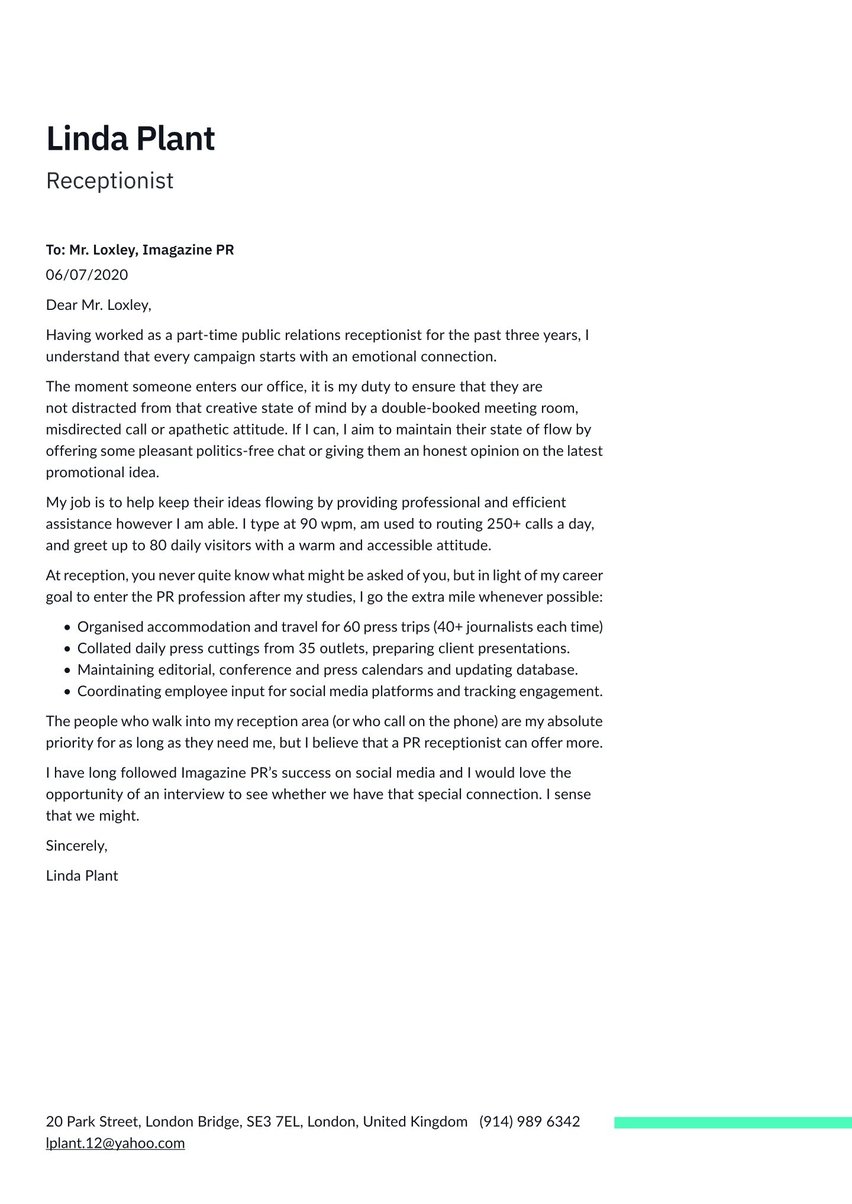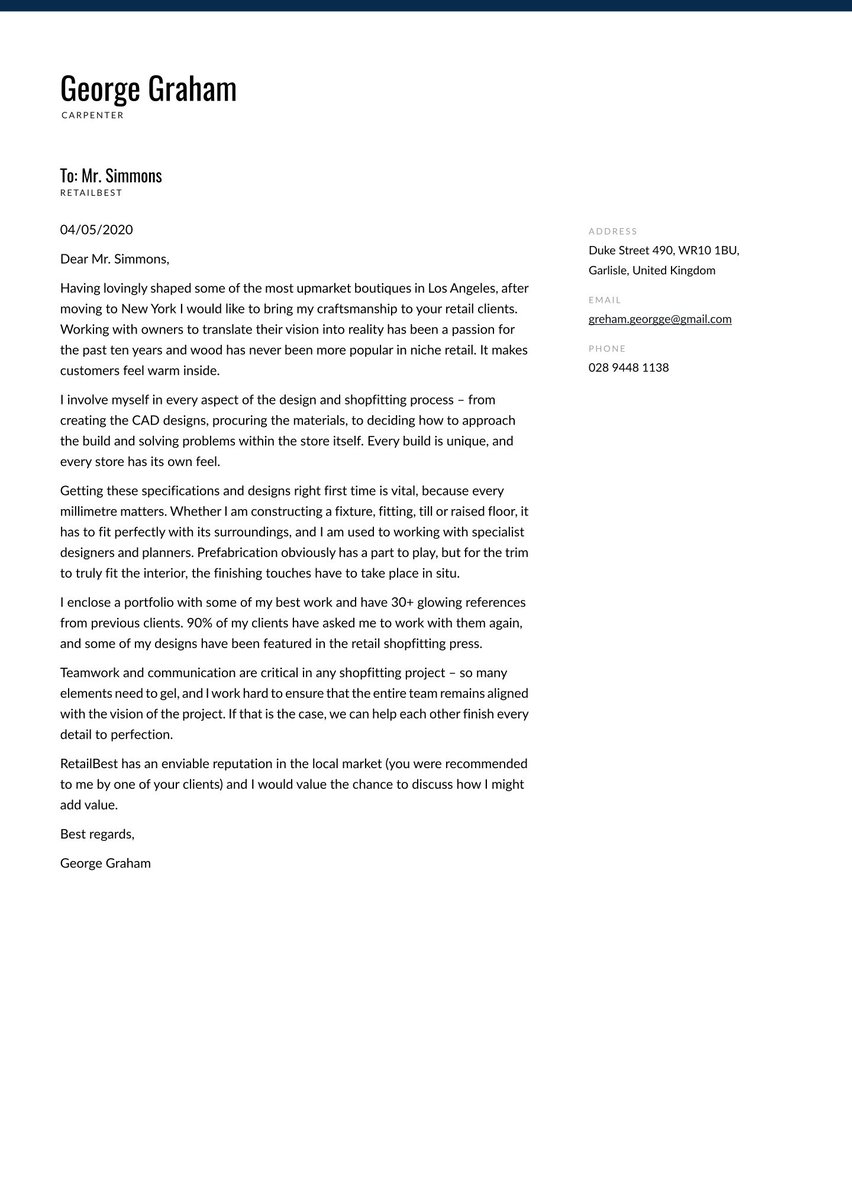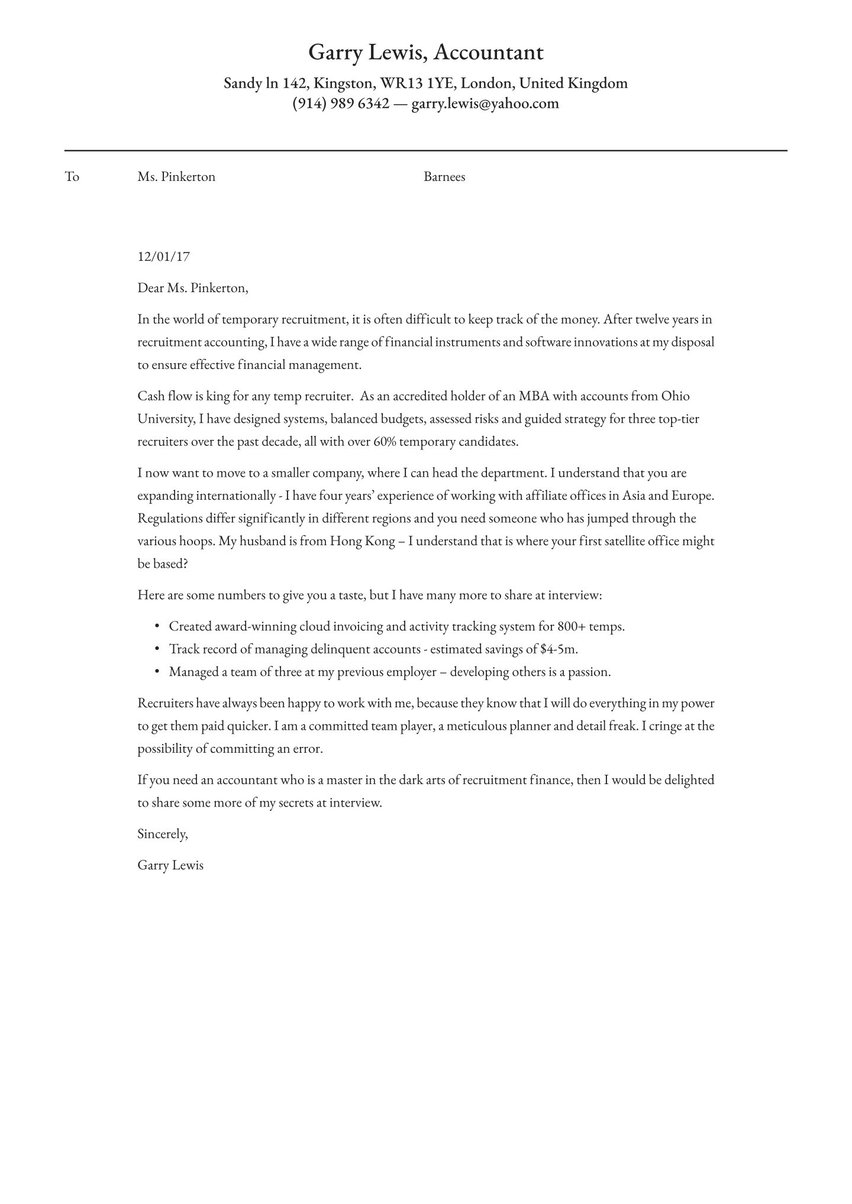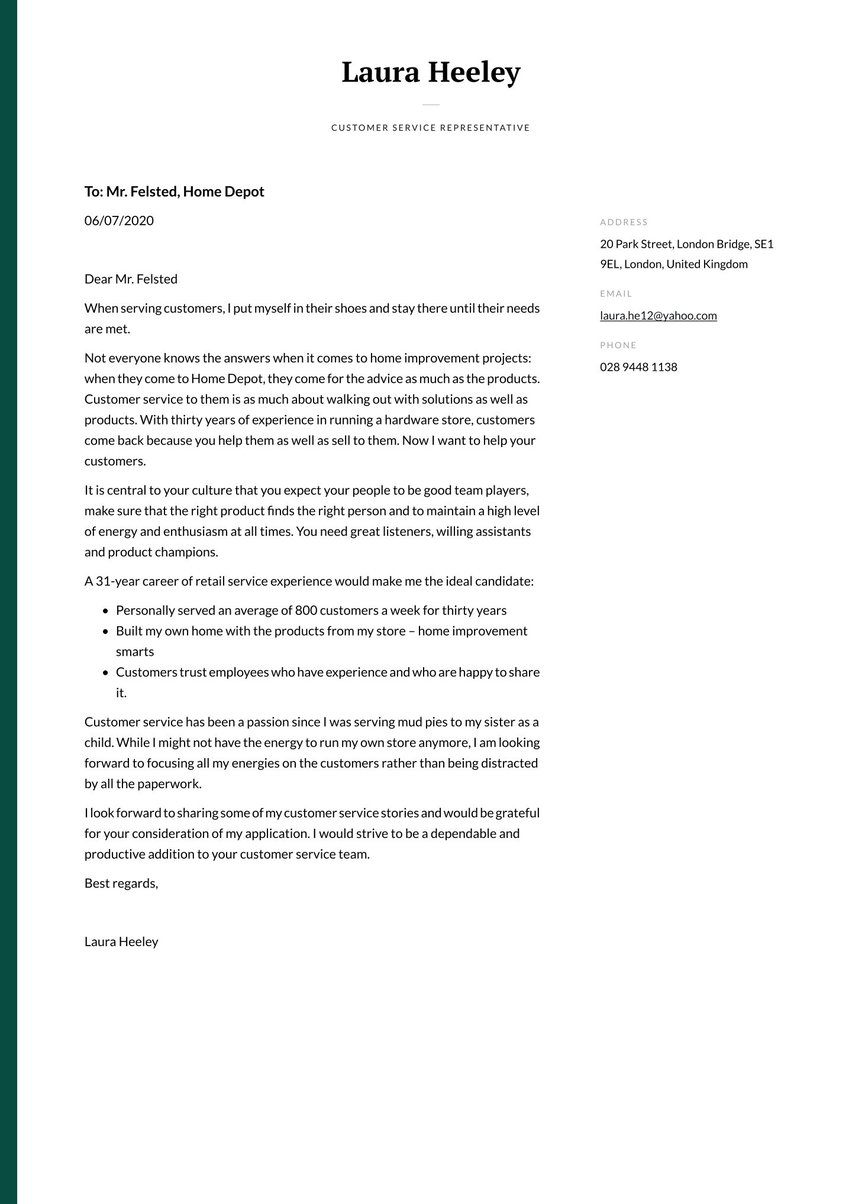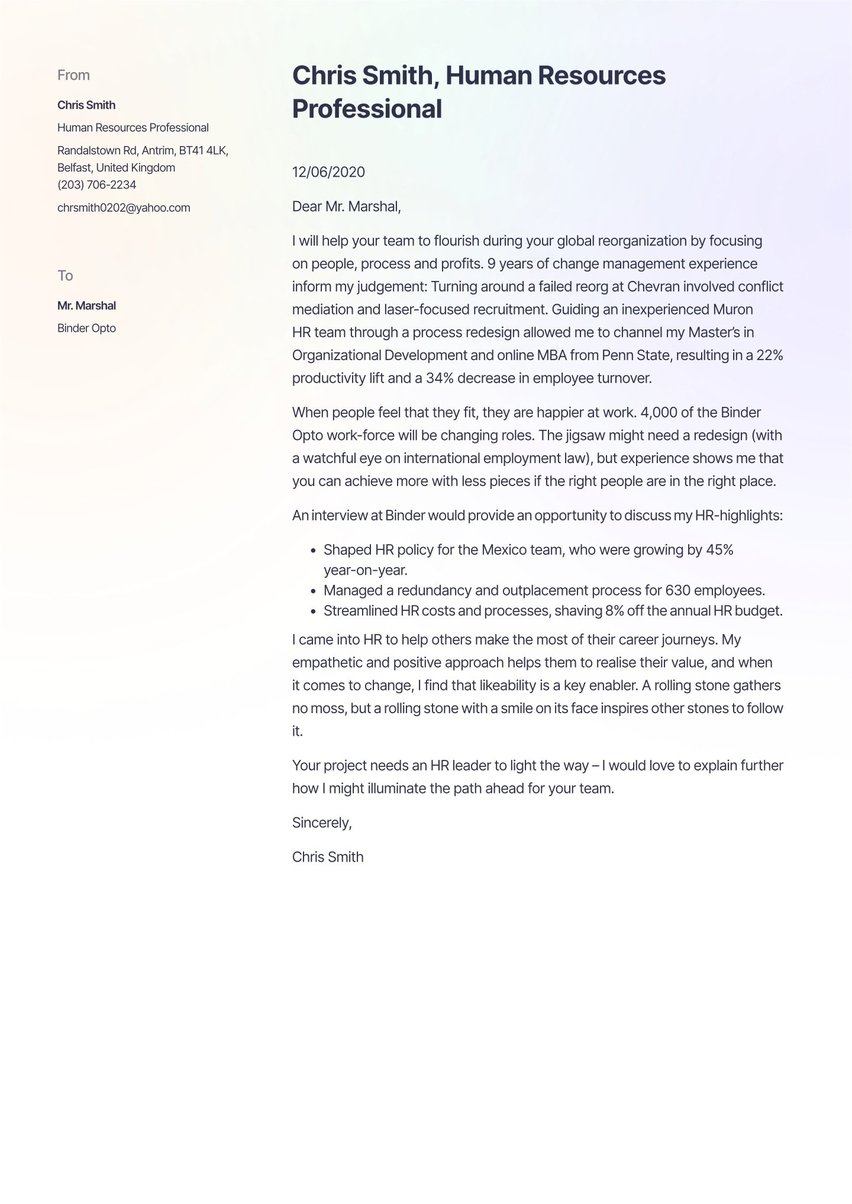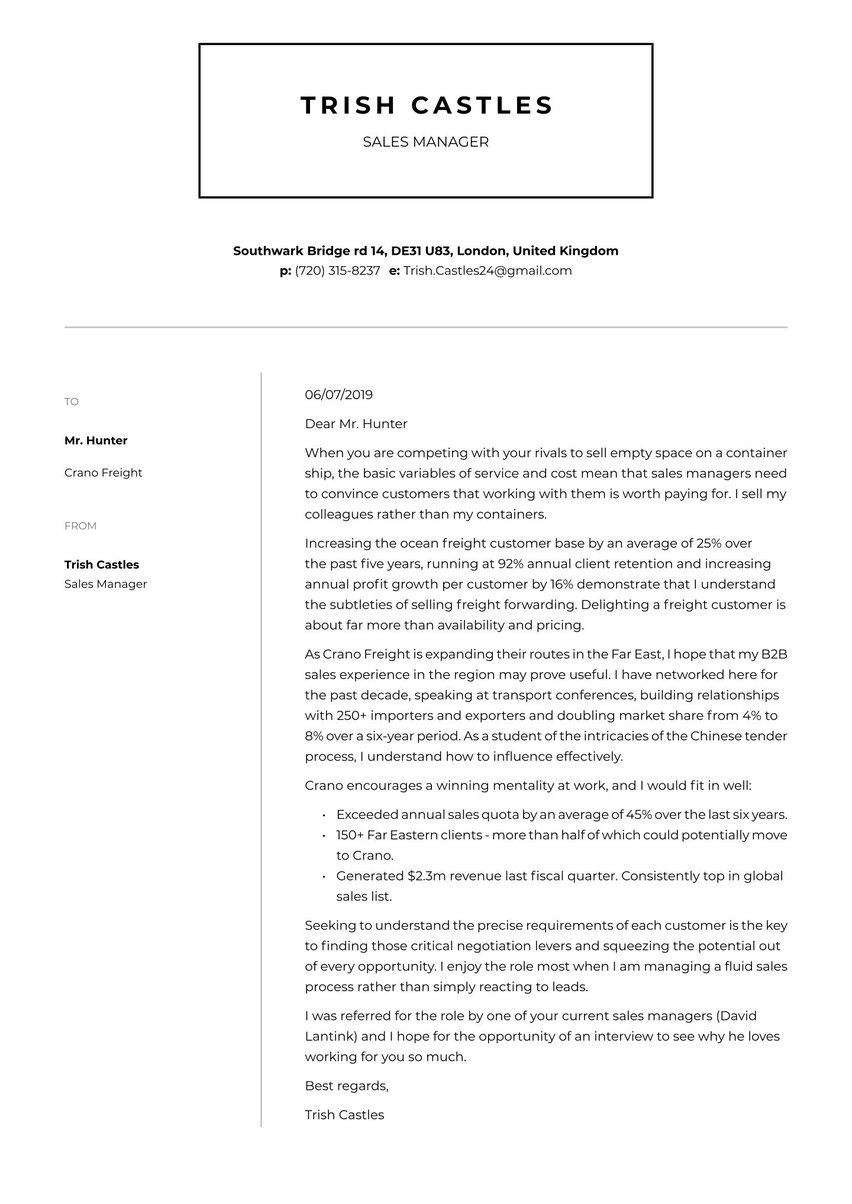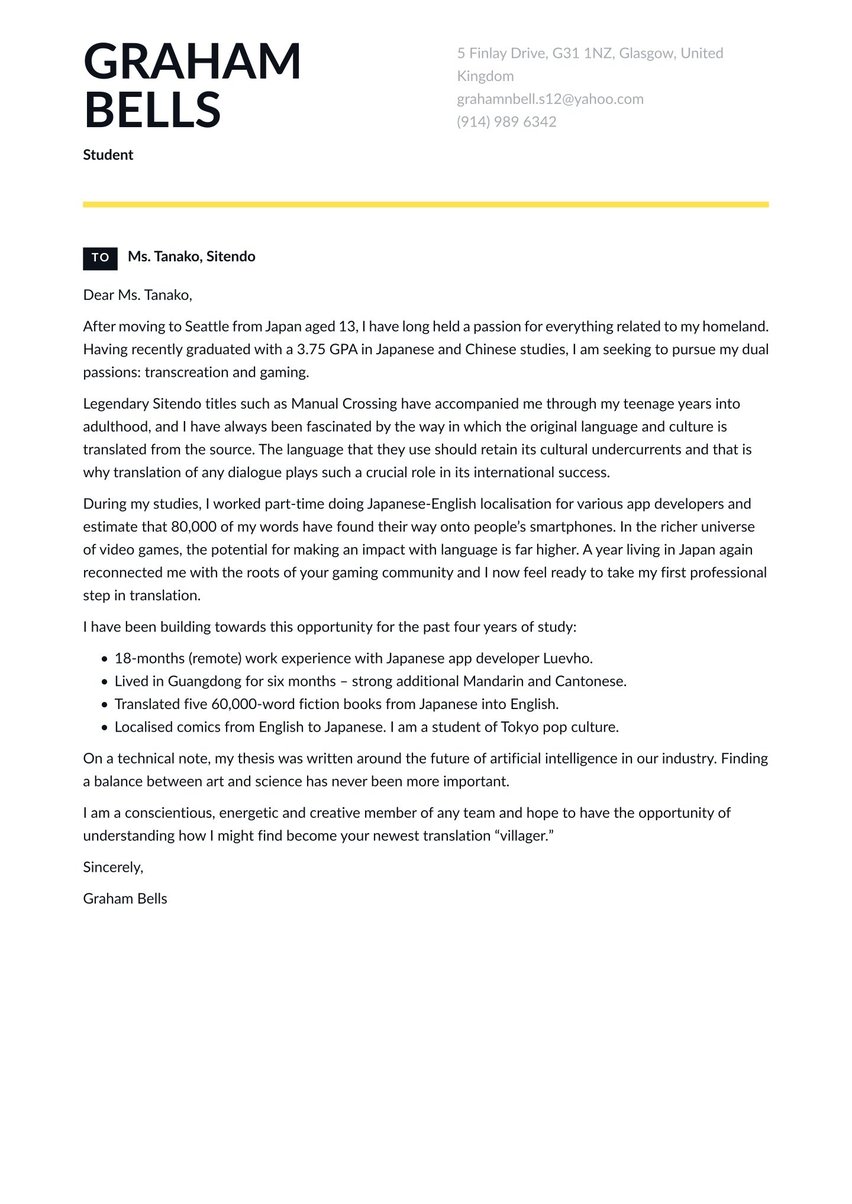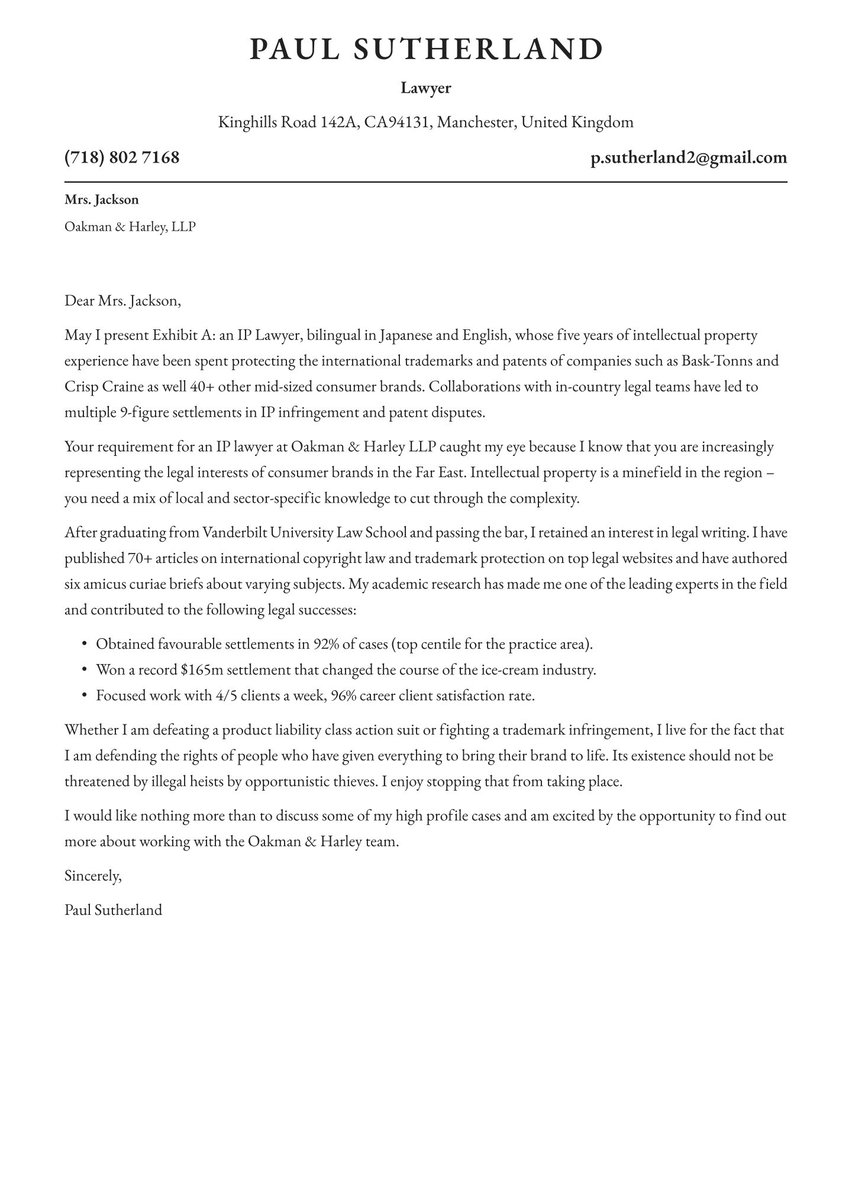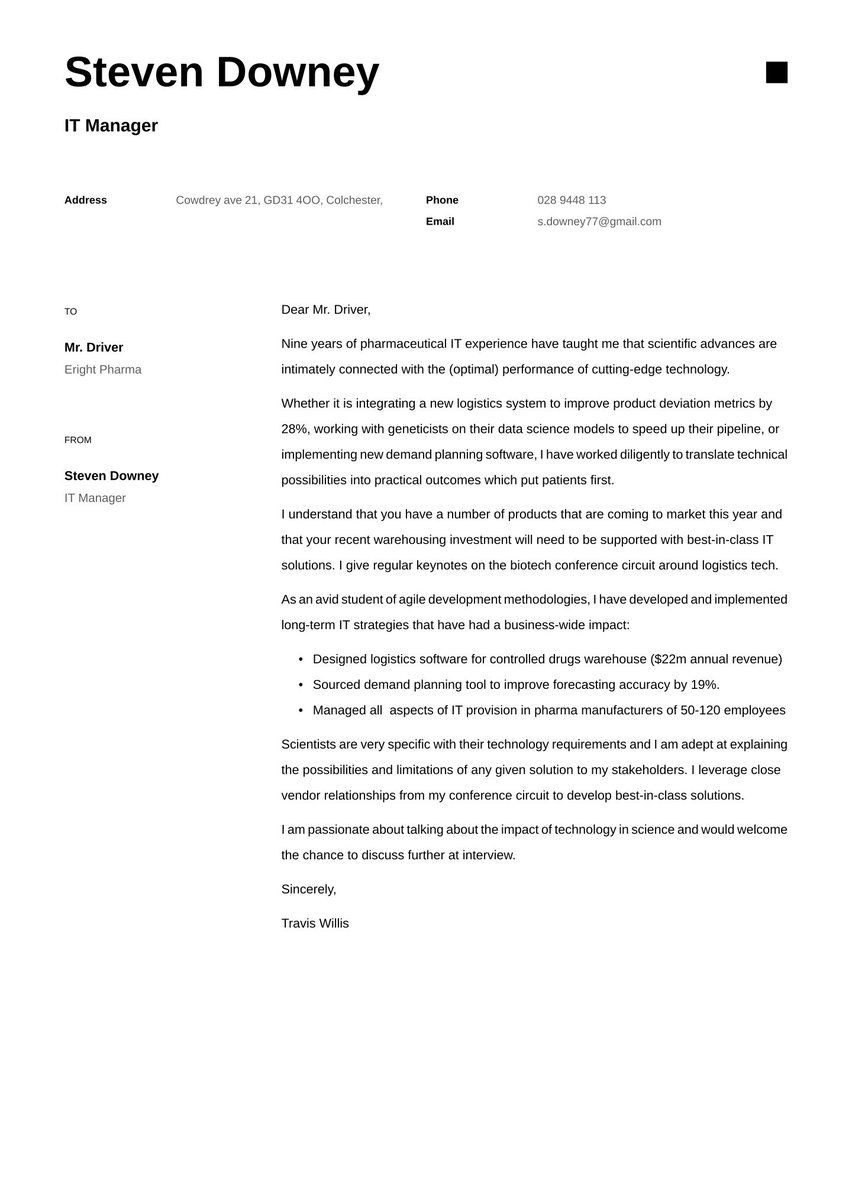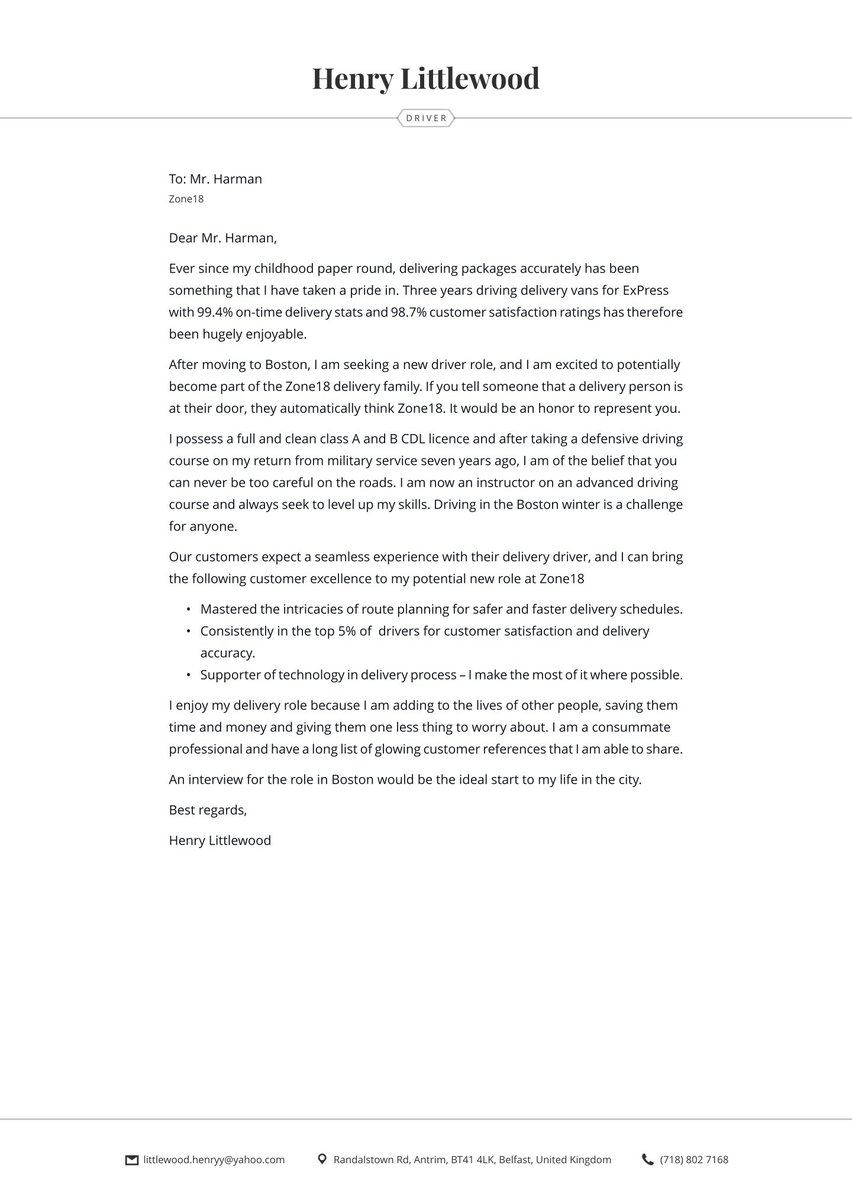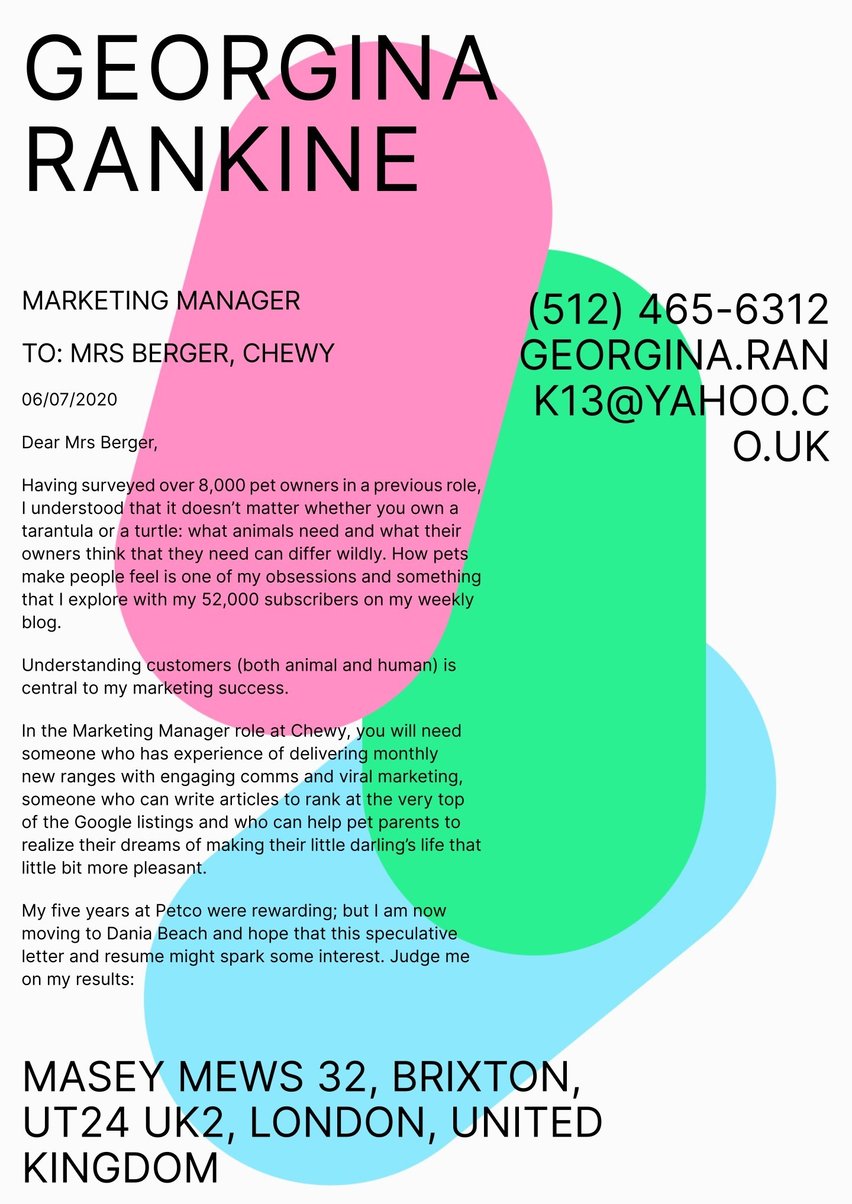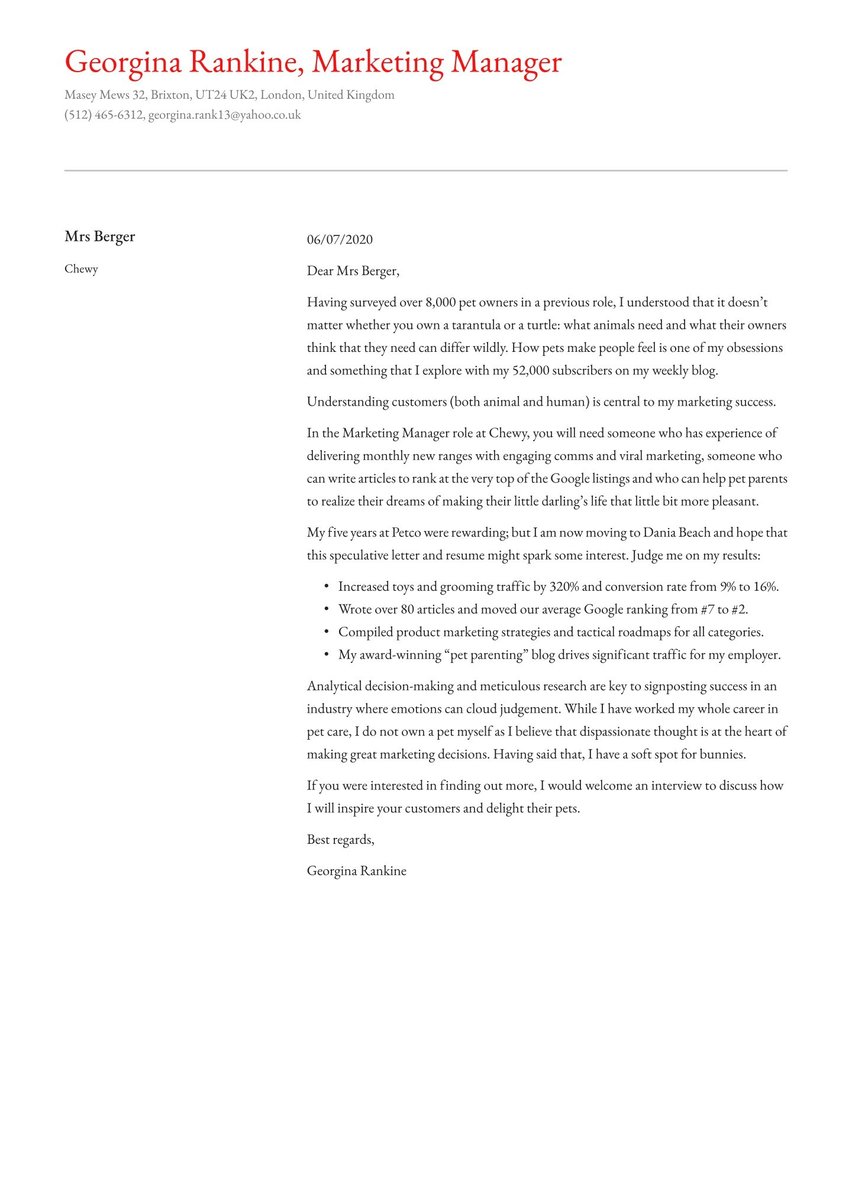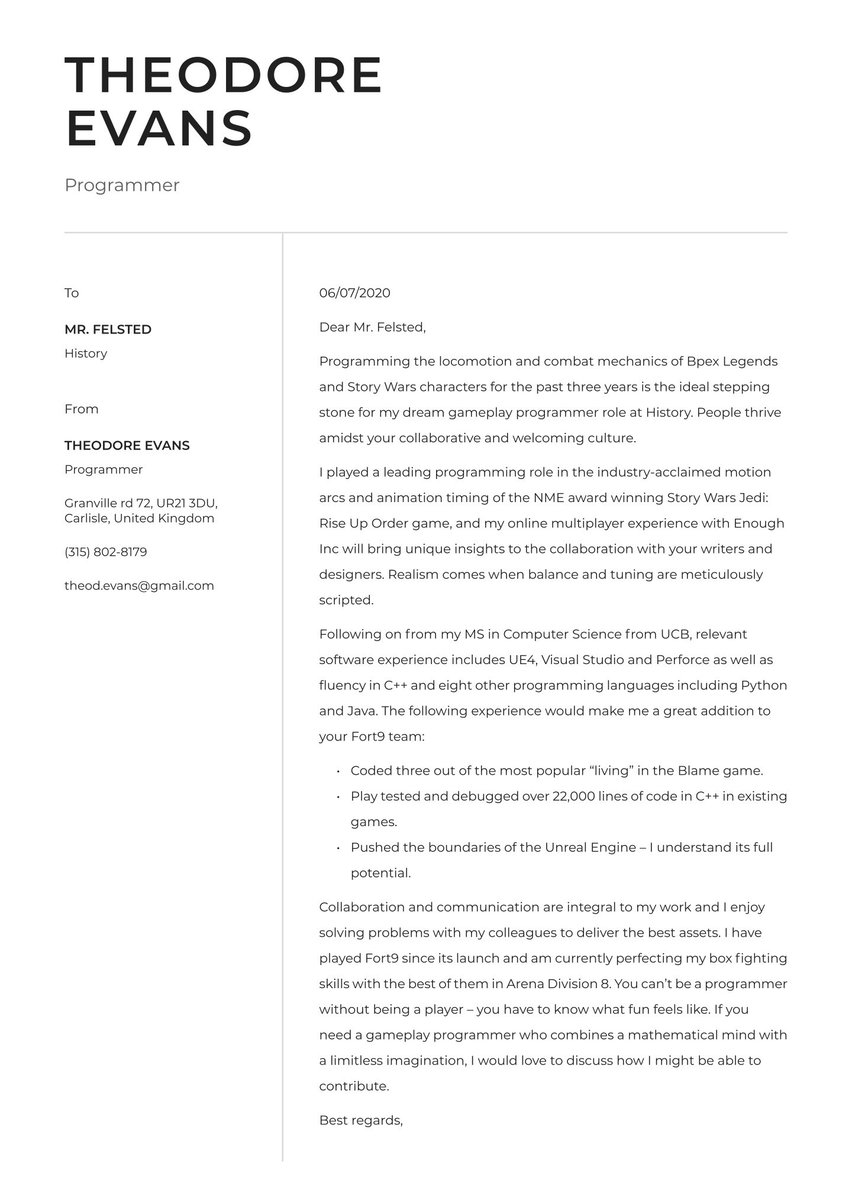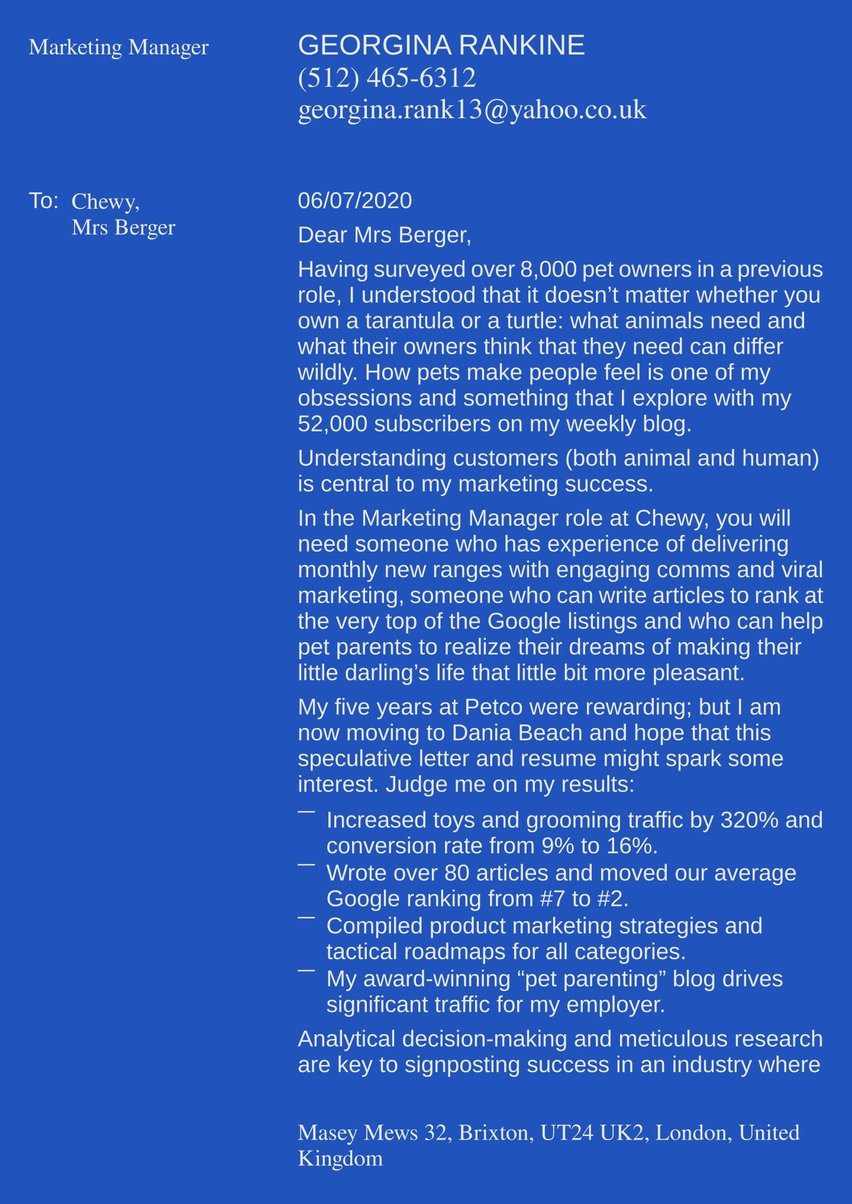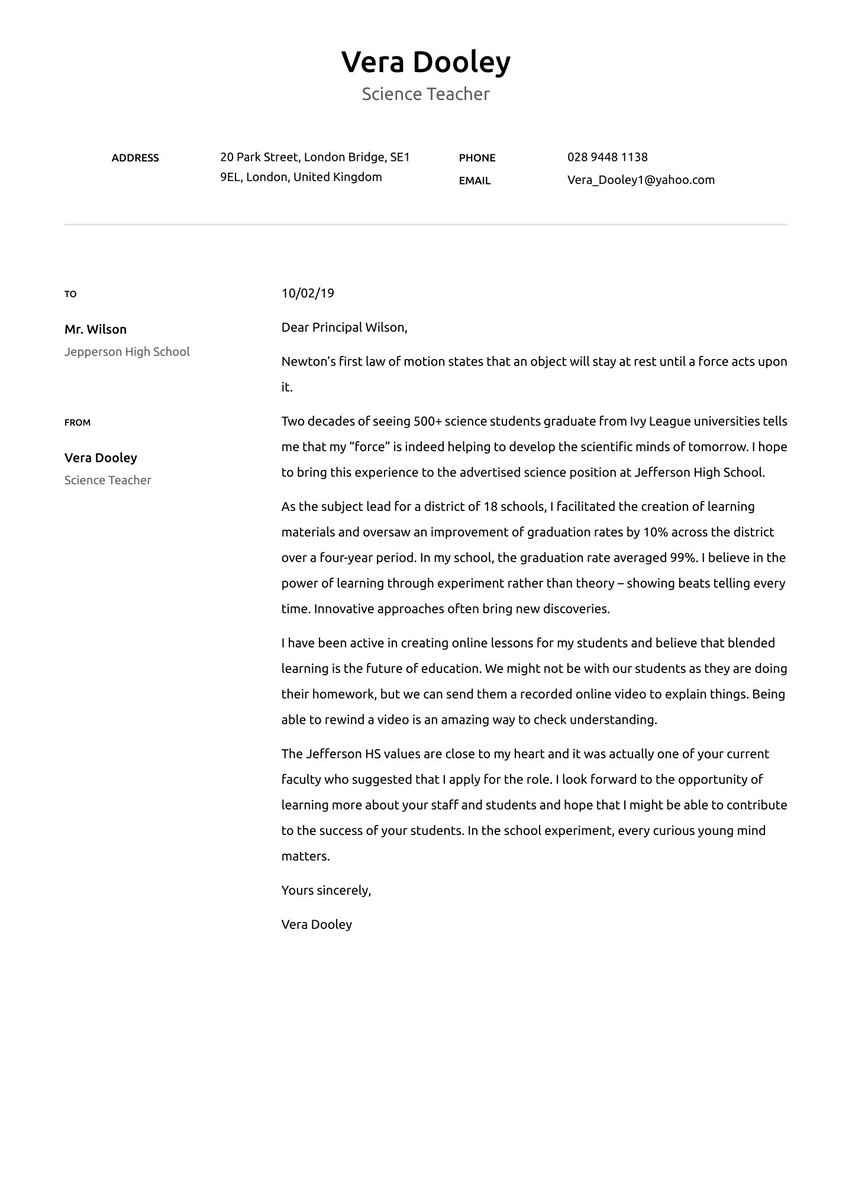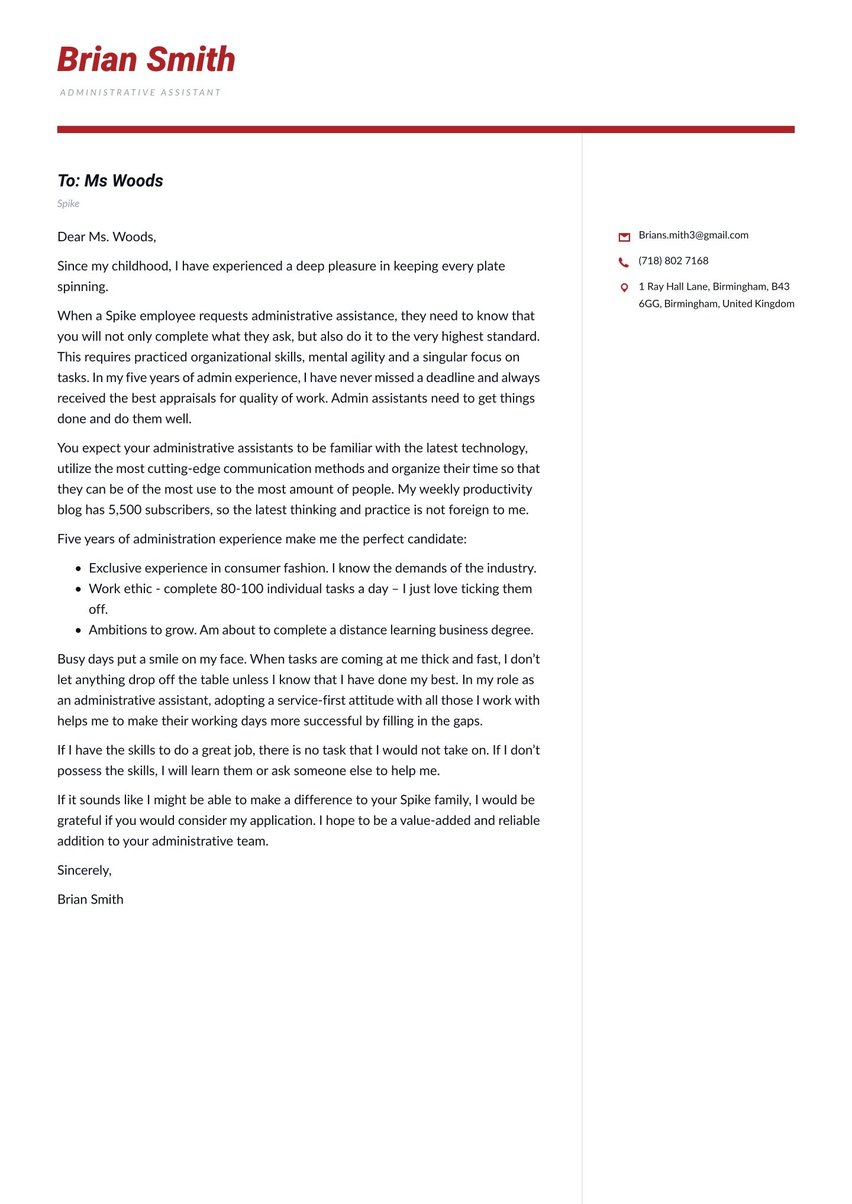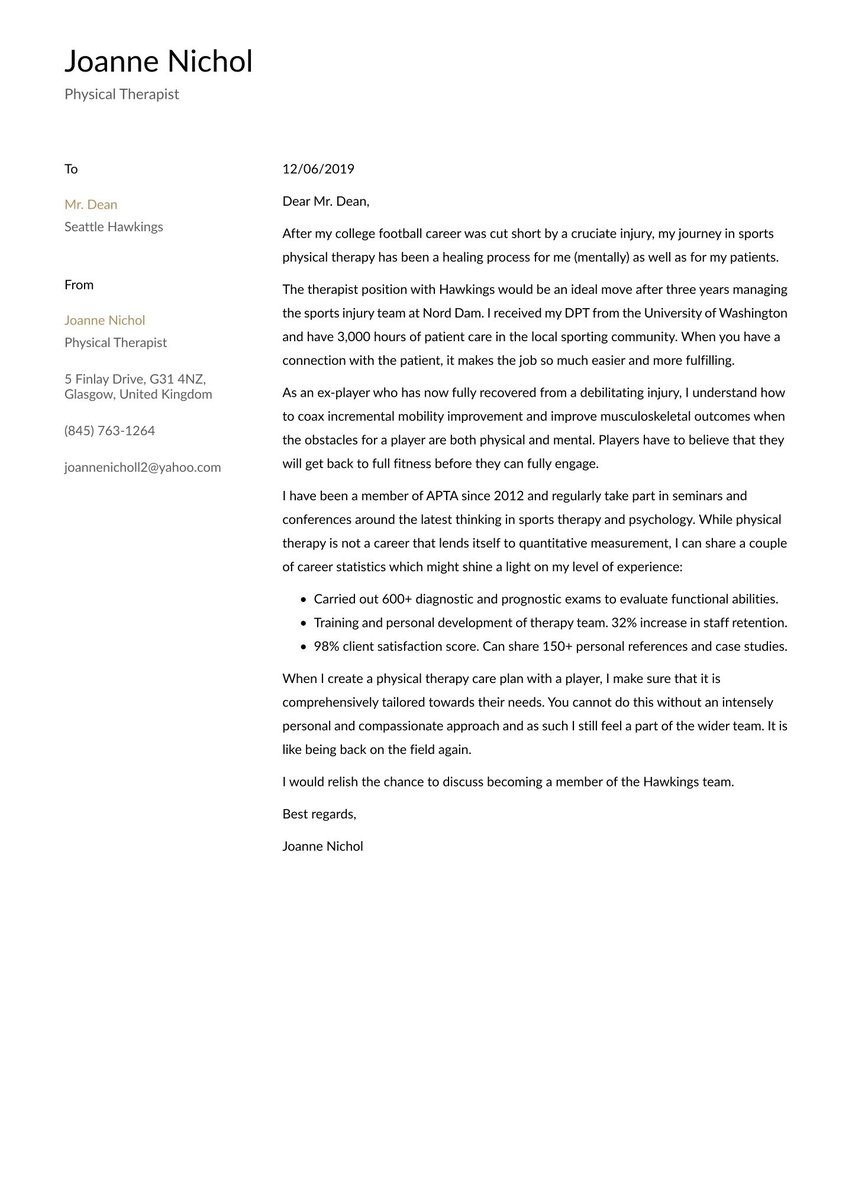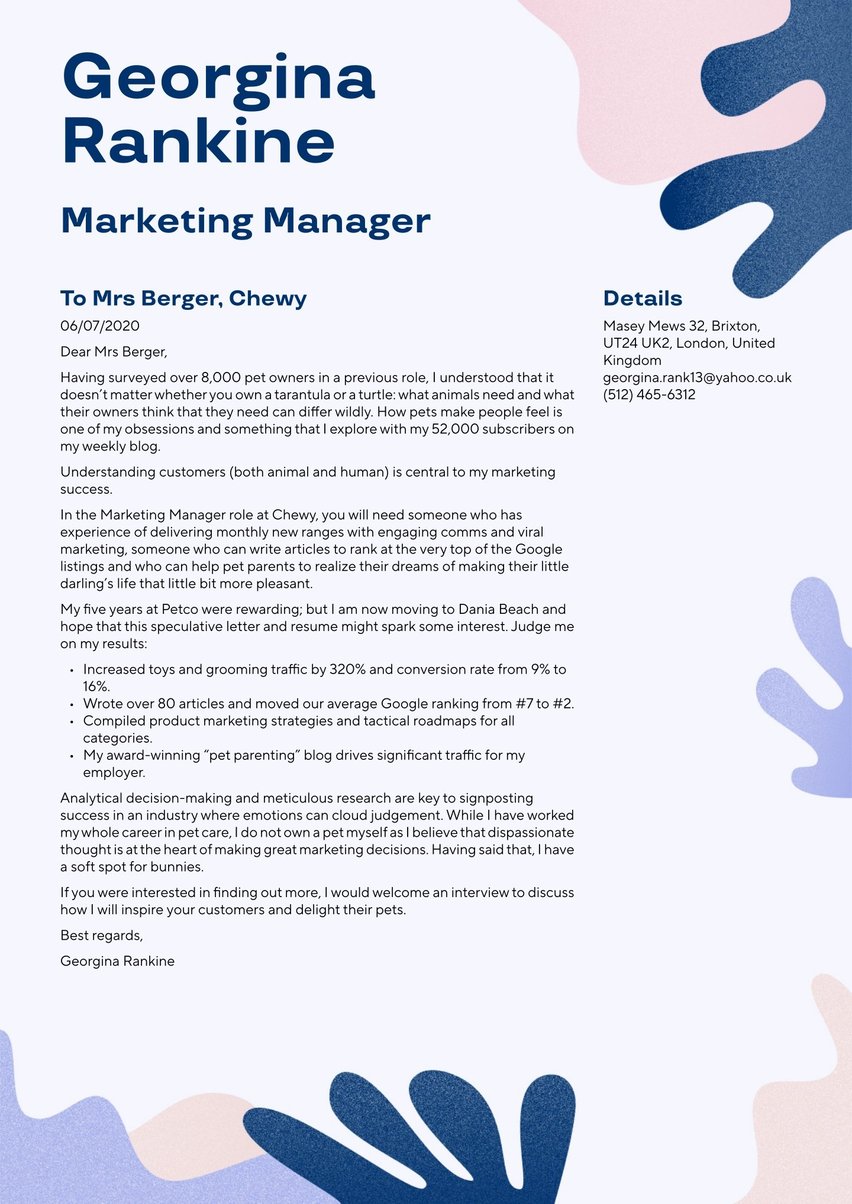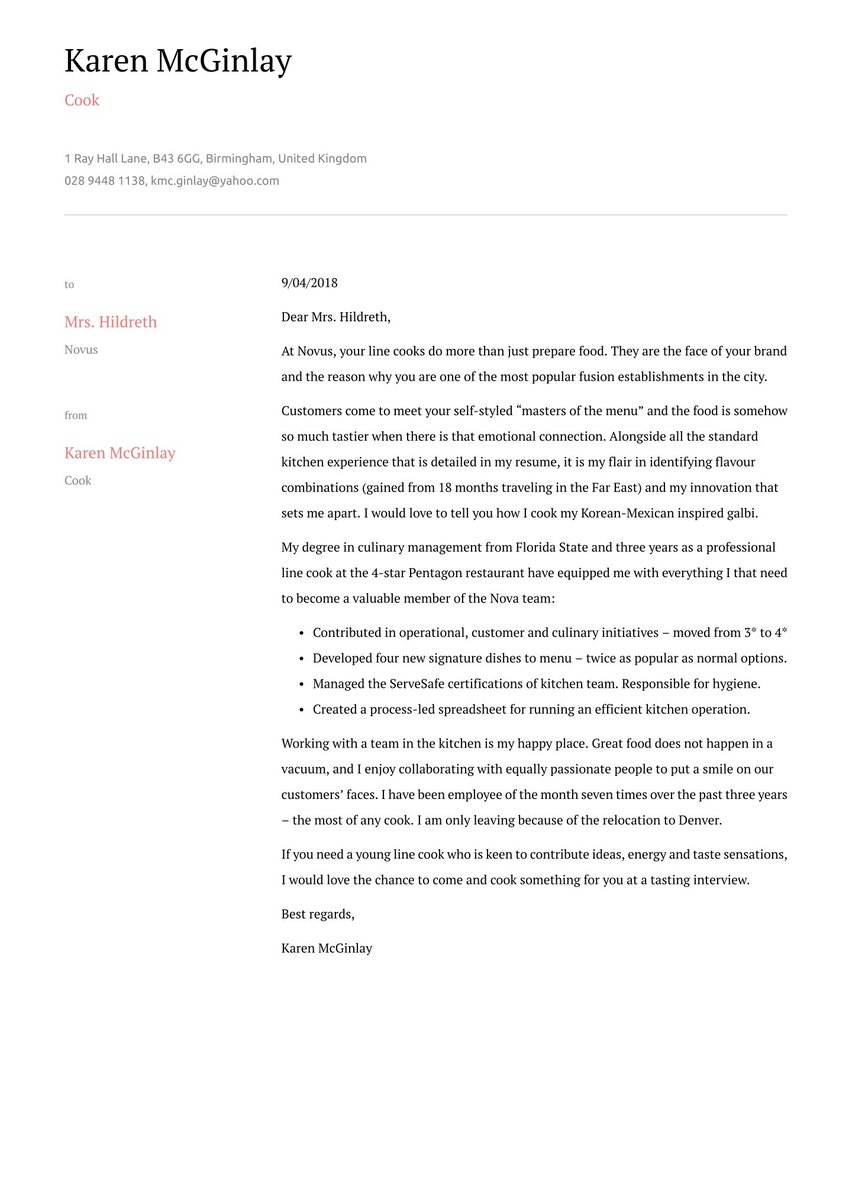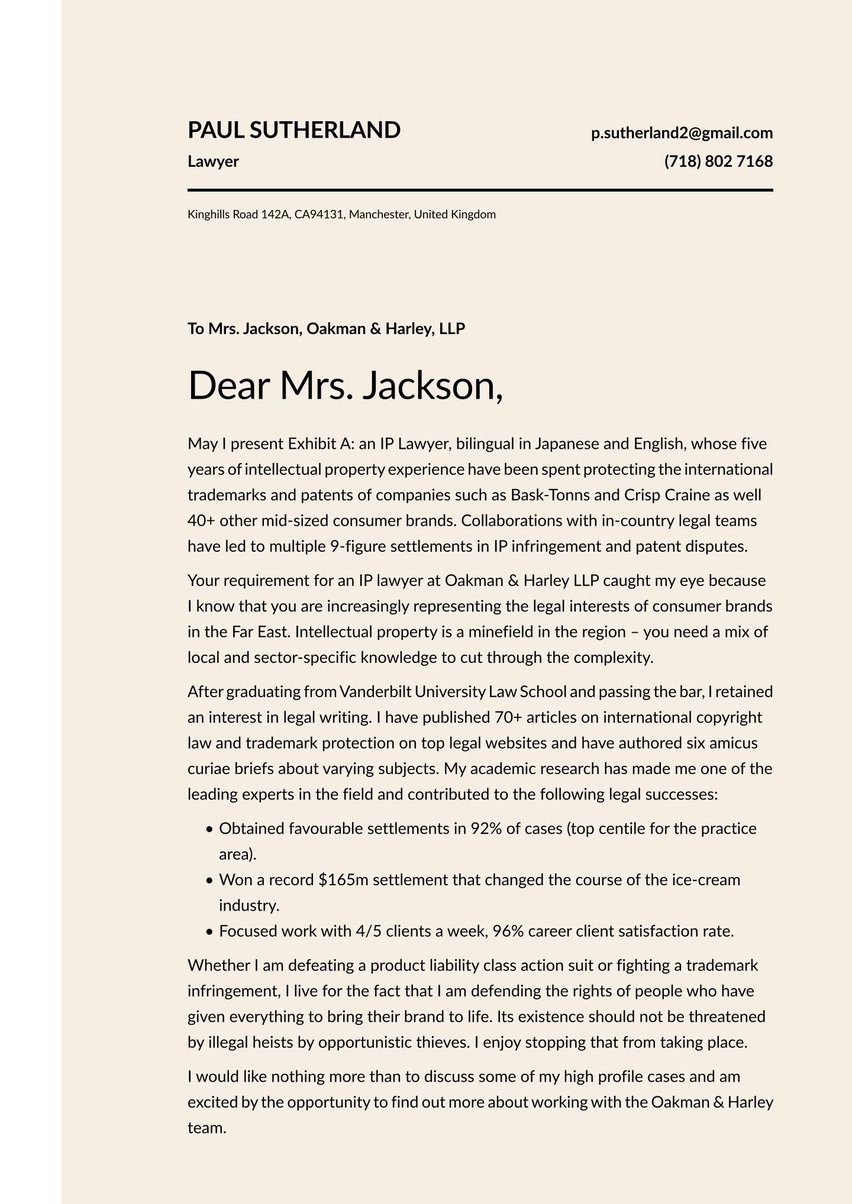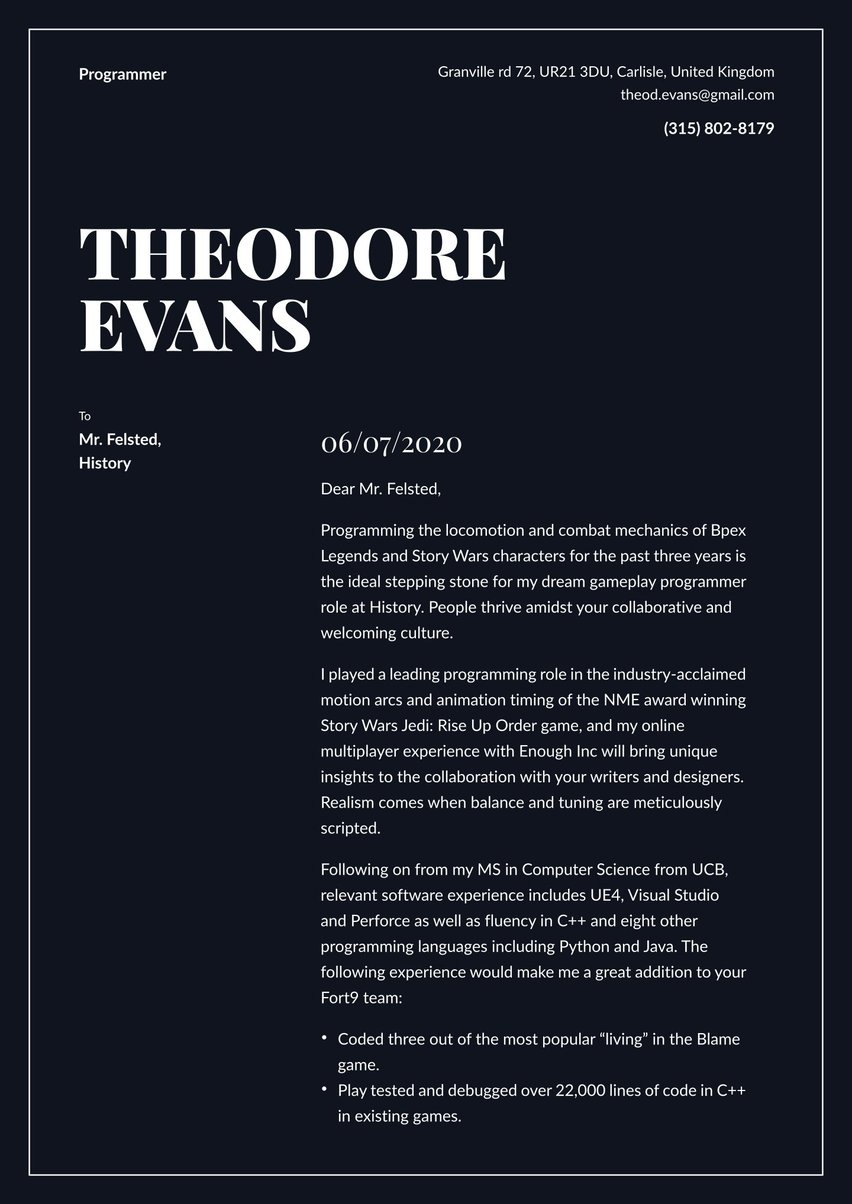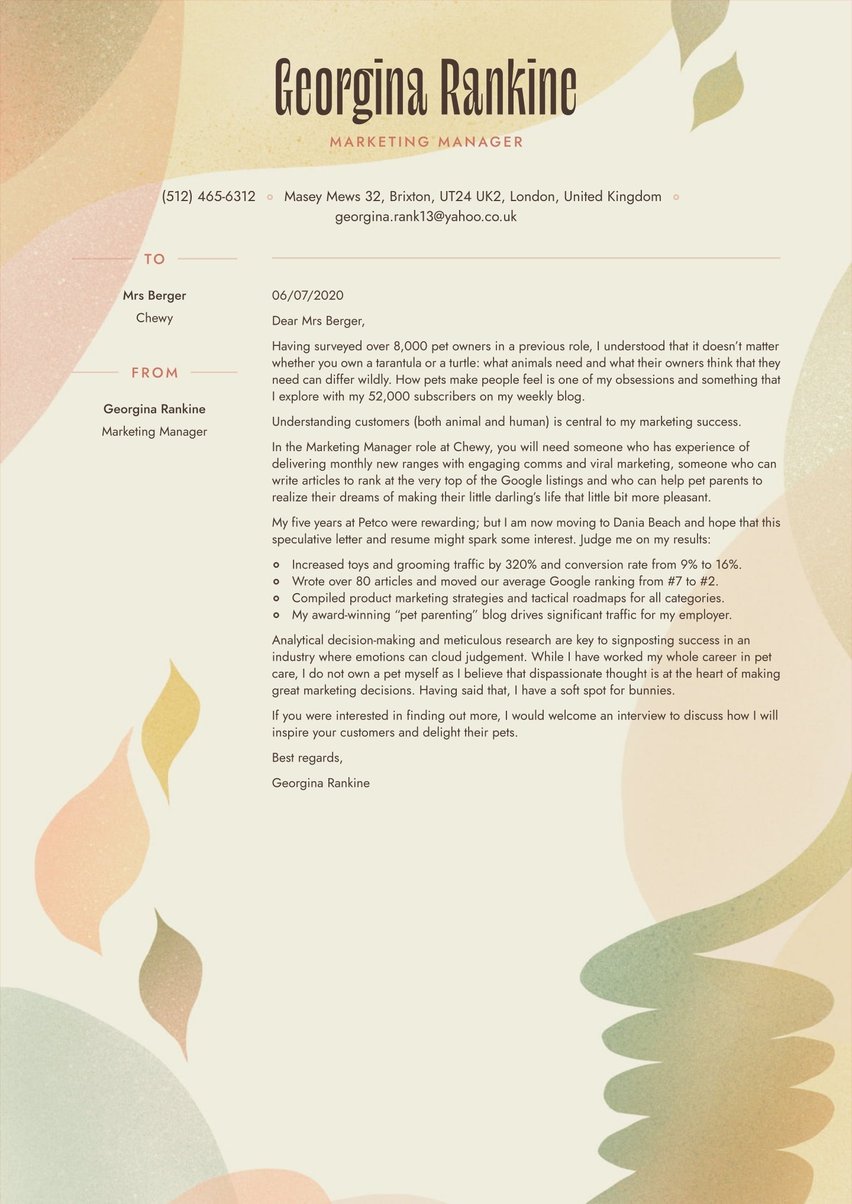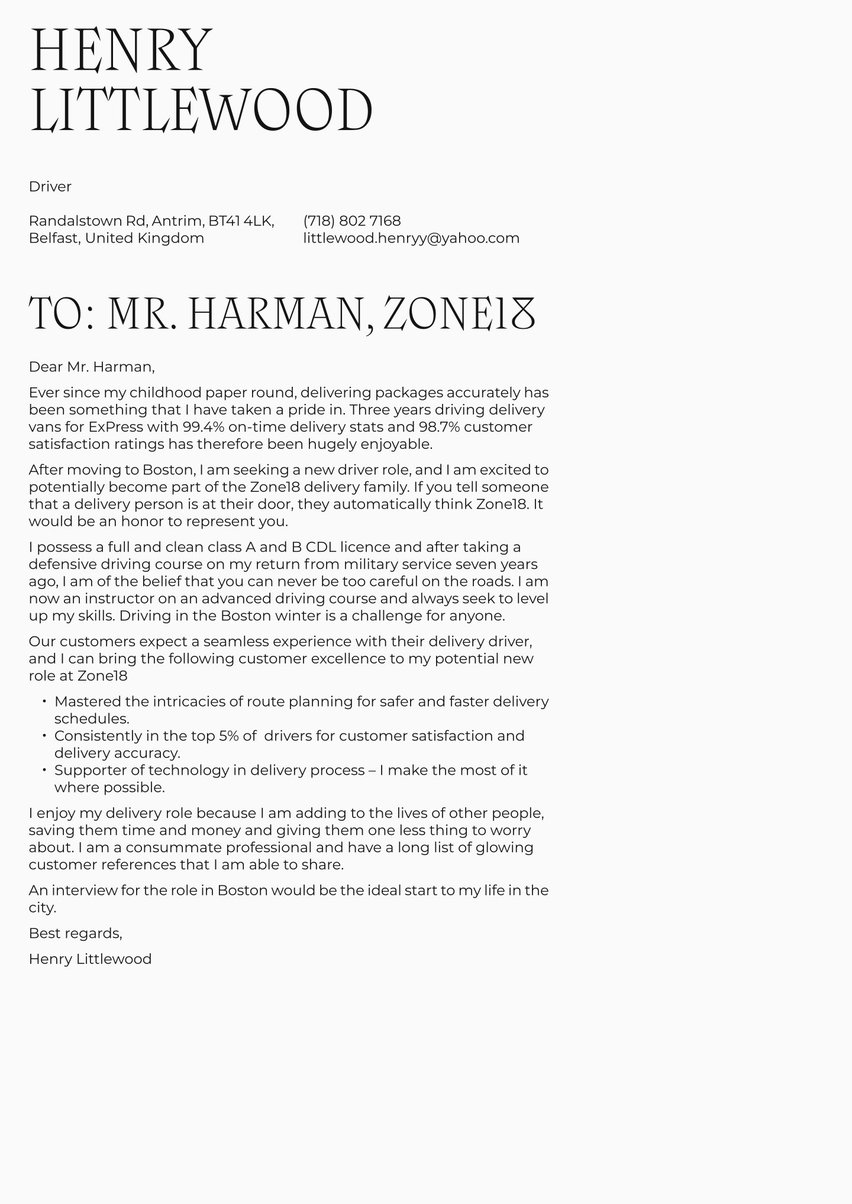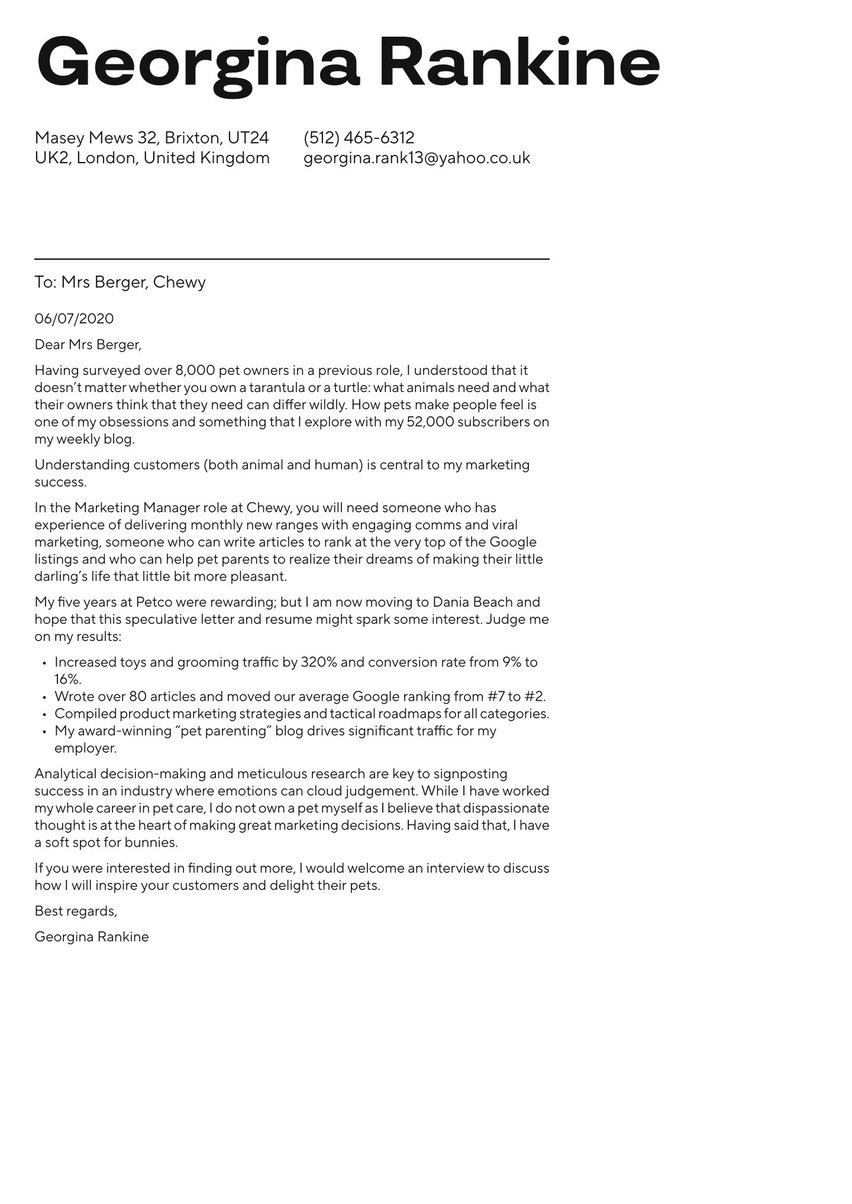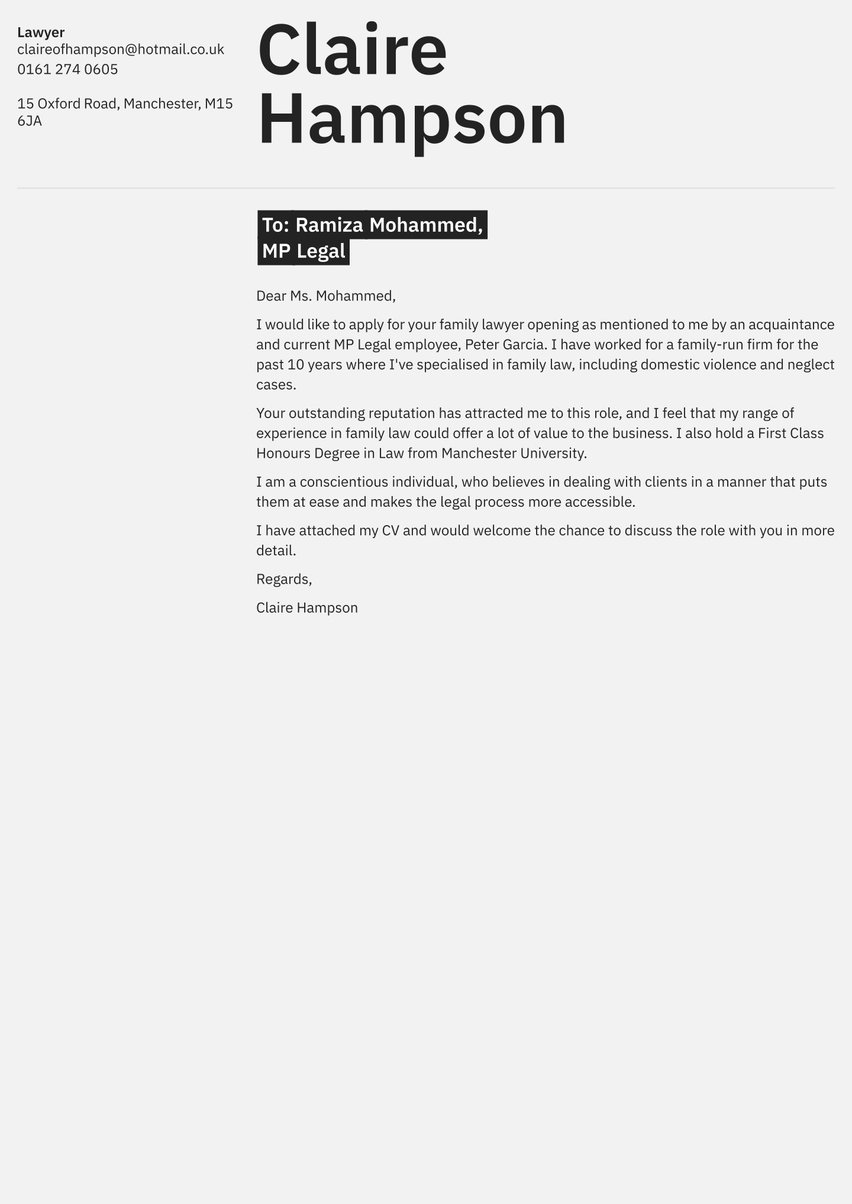If you're applying to multiple roles or attending job fairs, having a well-written general cover letter can be a real asset. It saves time while still giving you the chance to make a strong first impression—provided it's done thoughtfully.
While you don’t necessarily have to customise your cover letter for each individual company, it should still feel personal and genuine, not like something copied and pasted.
In this guide, we’ll cover everything you need to know about crafting a top-notch general cover letter, including an example that you can adapt to your requirements.
General full text-only cover letter example
Dear Hiring Manager,
Re: Application for Office Administrator Position
I am writing to express my interest in the Office Administrator position at your company. With my strong organisational skills, attention to detail, and experience in administrative roles, I believe I would be an excellent fit for this position.
In my previous role at Morgan Stanley's Birmingham office, I managed a range of administrative duties including reception, diary management, and document preparation. I developed proficiency in Microsoft Office applications and various administrative systems, allowing me to streamline office procedures and improve efficiency.
I am particularly skilled in:
- Coordinating schedules and managing calendars
- Processing correspondence and maintaining filing systems
- Supporting teams with administrative tasks and projects
- Communicating professionally with clients and colleagues
- Managing office supplies and equipment
I am known for my reliability, discretion with confidential information, and ability to prioritise tasks effectively in a busy environment. I am comfortable working independently or as part of a team and adapt quickly to new systems and procedures.
I am excited about the opportunity to bring my administrative expertise to your organisation and would welcome the chance to discuss how my skills could benefit your team.
Thank you for considering my application. I look forward to the possibility of speaking with you further.
Yours sincerely,
Daniel Roberts
Sections of a general cover letter
Before diving into writing your general cover letter, take a moment to think about the format and main points you want to highlight. A bit of preparation can help you stay focused and showcase your strengths effectively.
Here’s an ideal structure:
- Cover letter header. Select an attractive and professional cover letter header that includes your name, contact details, and main job title.
- Greeting. Greet the recruiter by name for a more personalised approach, or you can simply use “Dear Hiring Manager.”
- Introduction. Hook the reader with a short, compelling introduction to your general cover letter to introduce yourself and make a great first impression.
- Body. The body (main) section allows you to expand on your career to date and the transferable skills that will benefit the prospective employer.
- Conclusion. Wrap up your generic cover letter on a confident note and reiterate why the recruiter needs to hire you for the position. Don’t forget a call to action.
- Signature. End with a professional goodbye, including your name.
Your cover letter is a short insight into your key skills and experience, which leads the hiring manager to your CV. Aim for a concise one-page cover letter that sparks some interest and is focused on your target industry or career.
Looking to win over the hiring manager? View our library of 100+ cover letter examples, including related general cover letters:
If you need more general information and details covering each section, check out our article on how to write a cover letter.
Once you’ve crafted your header and greeted the hiring manager, it's time to make a strong impression with a compelling introduction.
Introduction of a general cover letter
A cover letter’s introduction is crucial because it’s your first—and often only—chance to grab a hiring manager’s attention. With dozens or even hundreds of applications to review, hiring managers often have to skim quickly, looking for standout candidates.
A strong, compelling opening that immediately conveys your enthusiasm and fit for the role can be the key to moving forward in the hiring process.
Dear Hiring Manager,
Re: Application for Office Administrator Position
I am writing to express my interest in the Office Administrator position at your company. With my strong organisational skills, attention to detail, and experience in administrative roles, I believe I would be an excellent fit for this position.
Hello,
I am writing to express my interest in the Office Administrator position at your company. I believe this opportunity aligns well with my general career goals, and will provide me with valuable experience.
Keep your cover letter’s opening clear and focused—it doesn’t need to be complex. A few well-chosen lines that introduce who you are, your top-level skills and expertise, and your enthusiasm for the role can help you quickly establish a connection with the recruiter.
A great introduction can be easily adapted for various positions with minimal edits—usually by customising it to reflect the specific organisation or role you're targeting.
General cover letter body
Next, it’s time to tackle the body or main section of your generic cover letter. Try this trusted formula:
- Showcase your top-level qualifications and achievements.
- Demonstrate how you're the perfect fit for the industry or organisation.
- Deliver a compelling conclusion.
- End with a call to action that encourages the hiring manager to get in touch.
First body paragraph
Follow up your introduction by highlighting the key skills and experiences that make you a perfect fit for the role and company.
Here’s how you can showcase these qualifications in your first body paragraph:
- Highlight your education. Share details of relevant degrees, certifications, or credentials that align with your target role and career.
- Showcase accomplishments. Outline results and achievements relevant to your chosen field, such as a specific goal achieved, in-demand technical (industry-specific) skills, or ideas that brought value in a similar role.
- Mention transferable skills. Detail valuable transferable skills that can be applied to multiple roles and industries. Communicating effectively, active listening, and adaptability can be a killer combination in most roles. Provide examples of these skills in action.
- Technology and trend awareness. If it fits, dive into your understanding of current and emerging technologies in your field. Perhaps you’re a whizz in AI and machine learning or skilled in the use of project management software. These details show that you’re not only keeping up with the times—you’re ahead of them.
- Supervisory roles. Mention any experience in overseeing and developing teams or providing training and mentorship to new hires.
Adjust the tone of your general cover letter
The tone of your cover letter should reflect the nature of your profession. For instance, a warm and enthusiastic approach may suit a youth programme coordinator, whereas a more formal and measured tone would be expected from a compliance analyst. Tailoring your language accordingly helps ensure that your message resonates with the intended audience.
Second body paragraph
Despite the fact that you’re creating a general cover letter, it’s essential that it still reflects relevance to a particular career path. A generic cover letter lacking direction or purpose is easy for employers to spot—and unlikely to make a strong impression.
Instead of simply changing out the name of the company or job title, tailor your general cover letter to the wider industry you are targeting. Research job adverts in your chosen sector, identify recurring themes and in-demand skills, then focus your letter on these areas.
For example, if you were targeting marketing roles in the UK, the in-demand skills and experience could include the ability to:
- Leverage data to inform decisions.
- Use AI and machine learning to automate and personalise marketing efforts.
- Create engaging marketing content.
- Communicate clearly and persuasively.
Incorporating this type of information will give hiring managers the sense that you’ve written your cover letter with their company in mind, even if it’s being sent to multiple organisations.
In my previous role at Morgan Stanley's Birmingham office, I managed a range of administrative duties including reception, diary management, and document preparation. I developed proficiency in Microsoft Office applications and various administrative systems, allowing me to streamline office procedures and improve efficiency.
I am particularly skilled in:
- Coordinating schedules and managing calendars
- Processing correspondence and maintaining filing systems
- Supporting teams with administrative tasks and projects
- Communicating professionally with clients and colleagues
- Managing office supplies and equipment
I am known for my reliability, discretion with confidential information, and ability to prioritise tasks effectively in a busy environment. I am comfortable working independently or as part of a team and adapt quickly to new systems and procedures.
I am excited about the opportunity to bring my administrative expertise to your organisation and would welcome the chance to discuss how my skills could benefit your team.
Call to action & conclusion
Your last paragraph should include a compelling end to your cover letter and a call to action.
Reiterate your strong interest in the role and your excitement about bringing your specific expertise to the organisation.
Make sure to express your gratitude for the employer’s time and consideration in reviewing your application. This shows that you respect their time and may improve your chances of getting an interview.
Wrap up on a confident note with a call to action to encourage recruiters to get in touch and invite you for an interview.
Thank you for considering my application. I look forward to the possibility of speaking with you further.
Yours sincerely,
Daniel Roberts
Conclude your call to action with the professional and polite closing of “Sincerely,” followed by your full name. Then ensure a final review, polish, and proofread before sending your generic cover letter.
Key takeaways
Crafting a general cover letter can be a great way to save time and speed up the job application process. Focus on your specific industry, and highlight any transferable skills and relevant accomplishments using clear and concise language.
Aim for a tone that’s fitting to your chosen field, and finish with a strong closing that expresses your genuine interest in the role and added value that you will bring to the organisation.
Try our cover letter builder for an easy way to assemble a polished, professional generic cover letter that will boost your job application and interview prospects.

